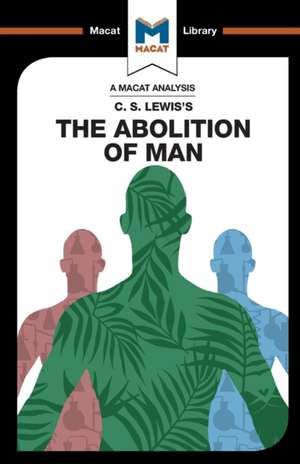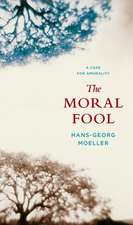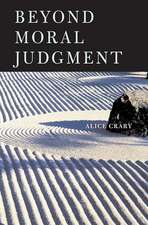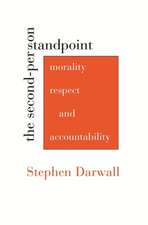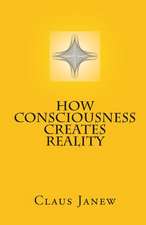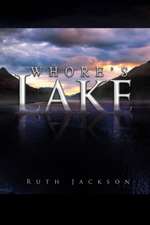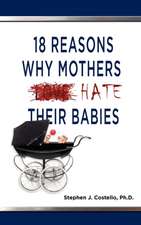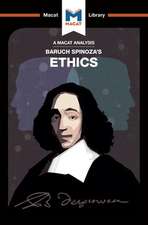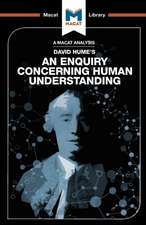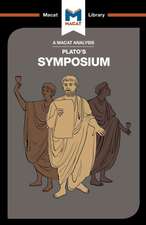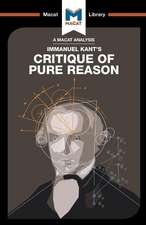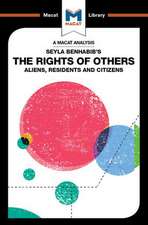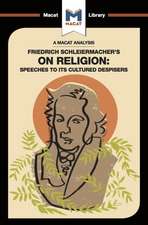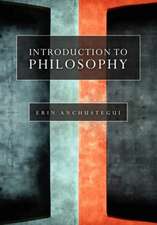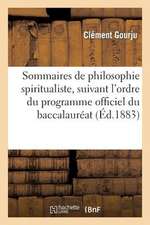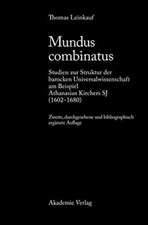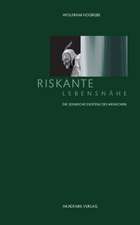An Analysis of C.S. Lewis's The Abolition of Man: The Macat Library
Autor Ruth Jackson, Brittany Pheiffer Nobleen Limba Engleză Paperback – 15 iul 2017
Din seria The Macat Library
-
 Preț: 47.29 lei
Preț: 47.29 lei -
 Preț: 47.49 lei
Preț: 47.49 lei -
 Preț: 47.18 lei
Preț: 47.18 lei -
 Preț: 49.34 lei
Preț: 49.34 lei -
 Preț: 47.42 lei
Preț: 47.42 lei -
 Preț: 47.20 lei
Preț: 47.20 lei -
 Preț: 46.98 lei
Preț: 46.98 lei -
 Preț: 47.37 lei
Preț: 47.37 lei -
 Preț: 47.29 lei
Preț: 47.29 lei -
 Preț: 47.30 lei
Preț: 47.30 lei -
 Preț: 47.23 lei
Preț: 47.23 lei -
 Preț: 64.07 lei
Preț: 64.07 lei -
 Preț: 47.30 lei
Preț: 47.30 lei -
 Preț: 47.23 lei
Preț: 47.23 lei -
 Preț: 47.18 lei
Preț: 47.18 lei - 30%
 Preț: 32.99 lei
Preț: 32.99 lei -
 Preț: 47.13 lei
Preț: 47.13 lei -
 Preț: 47.23 lei
Preț: 47.23 lei -
 Preț: 47.26 lei
Preț: 47.26 lei -
 Preț: 47.65 lei
Preț: 47.65 lei -
 Preț: 47.37 lei
Preț: 47.37 lei -
 Preț: 47.18 lei
Preț: 47.18 lei -
 Preț: 47.18 lei
Preț: 47.18 lei -
 Preț: 47.27 lei
Preț: 47.27 lei -
 Preț: 47.99 lei
Preț: 47.99 lei -
 Preț: 47.23 lei
Preț: 47.23 lei -
 Preț: 47.02 lei
Preț: 47.02 lei -
 Preț: 47.23 lei
Preț: 47.23 lei -
 Preț: 47.42 lei
Preț: 47.42 lei -
 Preț: 47.30 lei
Preț: 47.30 lei -
 Preț: 47.13 lei
Preț: 47.13 lei -
 Preț: 47.10 lei
Preț: 47.10 lei -
 Preț: 47.20 lei
Preț: 47.20 lei -
 Preț: 46.98 lei
Preț: 46.98 lei -
 Preț: 47.08 lei
Preț: 47.08 lei -
 Preț: 47.29 lei
Preț: 47.29 lei -
 Preț: 47.15 lei
Preț: 47.15 lei -
 Preț: 47.29 lei
Preț: 47.29 lei -
 Preț: 64.24 lei
Preț: 64.24 lei -
 Preț: 46.98 lei
Preț: 46.98 lei -
 Preț: 47.40 lei
Preț: 47.40 lei -
 Preț: 47.87 lei
Preț: 47.87 lei -
 Preț: 47.42 lei
Preț: 47.42 lei -
 Preț: 47.33 lei
Preț: 47.33 lei -
 Preț: 47.40 lei
Preț: 47.40 lei -
 Preț: 47.40 lei
Preț: 47.40 lei -
 Preț: 46.98 lei
Preț: 46.98 lei -
 Preț: 47.20 lei
Preț: 47.20 lei -
 Preț: 47.21 lei
Preț: 47.21 lei
Preț: 47.08 lei
Nou
9.01€ • 9.41$ • 7.46£
Carte disponibilă
Livrare economică 14-28 martie
Livrare express 28 februarie-06 martie pentru 14.11 lei
Specificații
ISBN-10: 1912127296
Pagini: 96
Dimensiuni: 129 x 198 x 6 mm
Greutate: 0.1 kg
Ediția:1
Editura: Macat Library
Colecția Macat Library
Seria The Macat Library
Cuprins
Notă biografică
Brittany Pheiffer Noble is a graduate student at Columbia University and holds a Masters degree from Yale University’s Divinity School, where she studied religion and theology. Her research focuses on literary and aesthetic theory, alongside theology and history. She is the translator of Arab Orthodox Christians Under the Ottomans 1516–1831 (2016) and has taught at Sciences Po, Columbia and Dartmouth.
Descriere
C.S. Lewis’s 1943 The Abolition of Man is a set of three essays that encapsulate some of the most important elements of good critical thinking. Lewis considers a weighty topic, moral philosophy – and more precisely how we teach it, and where morality comes from. As critics and enthusiasts for Lewis’s work alike have noted, though, he was not a philosopher as such, but a professor of literature. And rather than presenting novel or original ideas, the essays’ true qualities lie in the ways in which they evaluate and judge the arguments of prior philosophers, and how they construct a coherent, highly persuasive argument for Lewis’s own point of view. Lewis takes issue with textbooks and philosophies that argue for (or imply) that all morals and moral judgments are relative. He deploys evaluative skills to point out the weaknesses in such arguments and then sets out for his readers the kind of moral future such relativism could lead to. This hard-hitting evaluation, in turn, provides a solid base upon which to construct a well-argued counter-proposal, that moral laws can be absolute, and stem from objective, universal values. Persuasive and enthralling, The Abolition of Man showcases reasoning at its best.
